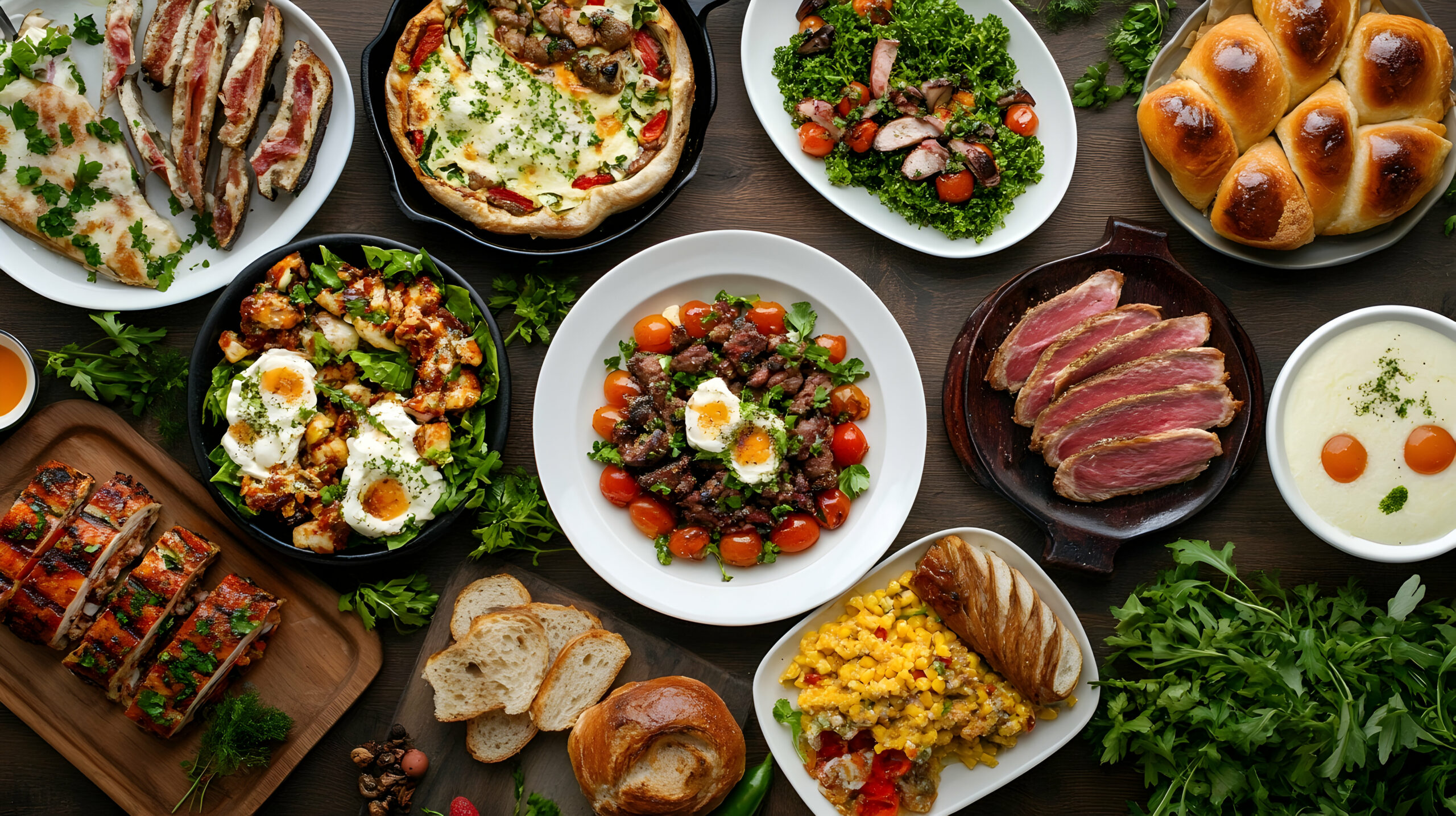Is the scale refusing to budge? Are you feeling tired, weak, and unmotivated halfway through your workouts? Are you struggling to stay consistent on your low-calorie diet?
For decades, dietitians told us that weight loss was achievable by following a simple equation: Eat less, lose more.
But today, we know that losing weight isn’t just caloric arithmetic. The $62 billion we spend collectively each year searching for the latest weight-loss solution goes to show that “calories in = calories out” hasn’t helped us much.
Today, I’ll explain the three reasons why eating more will actually benefit you in your weight loss goals. At the end of the post, I’ll share the real key to fat loss. Good news—it’s a lot easier than starving yourself.
Under-eating makes fat loss harder
Cutting calories may actually be sabotaging your weight loss goals.
Here’s why:
Overtime, under-eating slows down your metabolism
In theory, cutting calories creates a calorie deficit in our bodies. If your body burns 2000 calories a day but you only eat 1800, you’ll create a calorie deficit of 200 calories. The hope is that, since your body needs this energy, it will take the 200 calories it needs from the stored fat on your body.
There’s a big flaw in this theory. We aren’t machines. We’re living organisms, and our bodies are constantly changing, adjusting, and adapting to our circumstances.
Consistently eating fewer calories than your body needs can decrease the number of calories your body burns. If you only eat 1800 calories each day for a month, your body may slow down your metabolism so that it only needs 1800 calories each day.
Several studies back this up. Some researchers have found that low-calorie diets can decrease the number of calories your body burns by as much as 25%! Even worse, this adjustment in your metabolism can last long after you stop your calorie-restricting diet.
If you’re already eating a healthy and balanced diet and have hit a weight-loss plateau, don’t cut more calories.
Under-eating strains your body and hormones
Our bodies need a specific amount of nutritious food daily to thrive. Restricting your daily intake too severely can lead to fatigue. Maintaining this calorie restriction for too long can also lead to nutrient deficiencies.
Our hormones, specifically, take a big hit when we don’t eat enough healthy food. Several studies have found that restrictive diets raise cortisol—the stress hormone that directs fat to your belly. To make things worse, high cortisol levels also break down muscle, further sabotaging your weight loss goals.
Rather than undereating, enjoy a balanced diet focused on whole foods to lose weight slowly without shocking your body, energy levels, and hormones.
Eating more boosts physical fitness
Don’t shoot yourself in the foot when you’re halfway through your health journey. Eating less than you need will make the journey toward your weight goal a lot harder, and it maybe end your progress altogether.
Increasing certain foods can give you the extra boost you need to keep moving forward.
Say hello to toned muscles
Making gains in the gym requires adequate protein and calories. When calorie-restricted diets are also low in protein, your muscles can begin to shrink away. One study found that our protein needs actually increase when we try calorie-restricting diets.
If you’re looking to increase or maintain your muscle mass, eat more. These extra calories should come primarily from foods containing protein, which give your body the necessary amino acids to build muscle mass.
As a bonus, muscle tissue burns more calories than fat tissue does. In other words, the more of your body weight is attributed to your muscles, the more calories you’ll naturally burn each day.
Adding a bit more protein-rich food in order to boost muscle mass will help you reach that lean, toned body.
Make your workouts count
Adequate daily food will also ensure you have the energy to get the most out of your workouts.
Inadequate food intake can cause your energy to plummet, seriously weakening your power and performance at the gym.
If you’re hitting a ceiling with your squats or haven’t had a great day in the gym in weeks, it’s definitely time to evaluate your diet. To ensure effective, fat-burning, and muscle-building workouts, eat enough calories and protein each day.
Eating more will keep you on track
Without commitment, you’ll never start. But more importantly, without consistency, you’ll never finish. Adequate calorie intake will allow you to consistently become healthier and fitter day by day.
Since restricting calories is so difficult to maintain, it actually causes weight gain over the long term. The truth is out. Eating too little will lead to gaining more.
That’s great news for us! A whole-food diet that satisfies your body’s nutrition needs and keeps you full and satisfied is paramount to losing weight and keeping it off. Plus, it makes life much more enjoyable.
Hungry for a Healthier Lifestyle?
Are you still stuck on the 1200-calorie-per-day meal plans from 10-year-old fitness magazines? If you’re feeling the effects of eating too little, add an extra 100 to 200 calories of whole foods to your daily diet. This simple switch can help you reach your weight loss goals and make the journey a less hangry one.
Health and fitness doesn’t have to be painful. For more practical tips and tricks that will help you reach your weight goals, join the insiders’ crew that receives my weekly newsletter.
Ready to kick your health journey into high gear? Sign up for my next LEAN session before the spots fill up.





